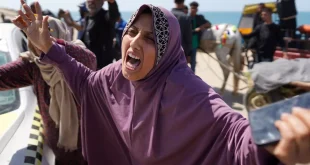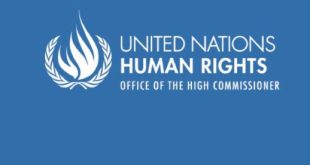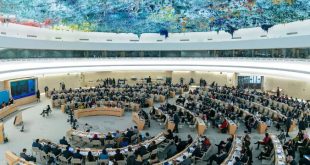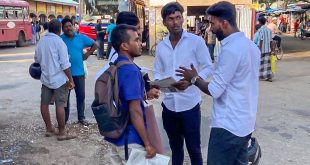The Kansas City Star
W henever there has been a crisis in the world, from 9/11 to events in the Middle East, no one group in the metro area has been able to speak for the local Muslim community.
The newly formed Midland Islamic Council wants to change that. And it also has other ambitious goals, such as unifying the various Muslim groups in the area.
“Most of us came from different countries, traditions and cultures,” said Shakil Haider, chairman of the council. “When we came here, we settled in different areas.”
Islamic centers and mosques were formed to meet religious, social and education needs. Haider estimates the area’s Muslim population at more than 25,000, including 5,000 Somalis.
“Immigrant Muslims are mostly in suburban areas, and African-American Muslims, mostly in Kansas City, and they conduct activities mainly in their own areas,” he said.
But two weeks ago, about 200 Muslims of various cultures came together in Pierson Auditorium at the University of Missouri-Kansas City for the council’s inaugural dinner meeting.
Although people came for a serious purpose, there were greetings, hugs and picture-taking. Passages from the Qur’an were recited, and in the middle of the meeting everything stopped for attendees to go into another room for prayer.
“We are brothers and sisters — not because of nationality or race, because we come from different places and different races,” said Muzammil Siddiqi, chairman of the Fiqh Council of North America, a guest speaker. “We are one body, one community.
“Coming together and working together is very important for Muslims. This is not a luxury but an obligation. Muslims must work together. … When you are united, you have strength.”
Siddiqi told those gathered that Muslims need to respect one another’s identity, diversity and background. They must work together on the things they have in common and excuse one another for the things on which they disagree. They should follow the law of Allah and the law of the land, he said.
Shakeel Syed, executive director of the Southern California Shura Council, said that what happens with Muslims anywhere affects Muslims everywhere, and all are held responsible.
“And we are expected to say something,” he said.
Syed, who also spoke at the council’s inaugural meeting, urged Muslims to keep their communities informed, making use of new technology to reach the younger population, and said the Shura Council is ready to answer any call and address any issue affecting Muslims elsewhere.
“Imagine a Muslim here whose dignity is challenged, and all you have to do is make one call, and the council will stand up for that Muslim,” he said.
So far 17 mosques and Muslim organizations have joined the council, including groups in Lawrence, Topeka and St. Joseph. The council anticipates embracing others in Wichita and parts of Iowa and Nebraska.
Among its stated goals are to promote collaboration and cooperation among Muslim groups and to build consensus on issues of common interest. It aims to provide a unified voice on civil rights, Muslim identity, Islamophobia, and social and humanitarian issues.
The idea for the council originated about five years ago, “but we couldn’t get it going,” Haider said.
But about two years ago the effort began anew.
Abid Malik had moved to Kansas City from California, where there are two successful Islamic councils, and he was able to bring new ideas to the table.
Haider and Malik met, along with people who had been part of the previous effort. From that came goals and objectives, possible areas of cooperation and collaboration, and mosques and groups that could be represented.
Prior to the council being formally established, Muslim individuals and groups had laid the foundation with their involvement in interfaith events, community outreach activities and humanitarian projects.
Last year, Muslim representatives met with President Barack Obama’s FEMA director on how the community could be involved in the emergency response system in case of a disaster. They also have met with Missouri disaster preparedness representatives and with a representative of Obama’s faith-based advisory council.
“There always has been a need for such an organization that had a sensitivity in terms of acceptance of all Muslim groups,” said Imam Hanif Khalil of the Al-Inshirah Islamic Center in Kansas City. “I feel this council has this sensitivity.”
He believes one voice is needed to address political and social concerns and to reach out to a demographic that is falling through the cracks, 15- to 40-year-olds. There also is a need, Khalil said, for an organization to arbitrate differences that arise within the Islamic communities.
Many issues confront Muslims, including addressing media after an international event, racial profiling, image building, political representation, and educational and scholarship opportunities, said Samira Hussein, business administration professor at Johnson County Community College.
“These do not necessarily fall within the domain of any one area mosque,” she said. “To deal with these and related issues, there needs to be a concerted effort on the part of one body, which is where I see an organization like the Midland Islamic Council is needed.”
Although the council hopes to serve as the umbrella organization for all area mosques and Muslim groups, neither the Islamic Center of Greater Kansas City nor the Islamic Center of Johnson County has joined.
“We’re waiting to see how MIC represents itself,” said Raqibul Huq, president of the Islamic Center of Greater Kansas City. “Previously there have been umbrella organizations that start out strong and have lost momentum.
“Our boards (from both mosques) wanted to hold off instead of jumping in. We are not saying no. We are considering it and want to see how it plays a role in the community first.”
One organization, Majlish al Masajad, which has been in the community for at least 10 years, includes the area mosques, Huq said. It meets twice a year and determines the dates and locations for the two annual Eid observances that bring together thousands of Muslims from the Midwest.
A.K. Tayiem, a board member of the Midland Islamic Council, said the council has no intention of interfering with the functions of the existing mosque organization.
As for representation in the new council — a concern with previous umbrella group attempts — each member group, whether large or small, will have one vote, Tayiem said.
“And we have lots of people who are committing their time and effort,” he said. “We feel that one umbrella organization will give us one voice, power and unity.”
Haider said council members have received positive comments from non-Muslims.
“In the past, they didn’t know who to go to for Muslim input,” he said. “They would go to individual mosques. Now there is one place they can go to get a broader view of Muslims from various traditions and cultures.”
 Sri lanka Muslims Web Portal Diversity and Inclusiveness
Sri lanka Muslims Web Portal Diversity and Inclusiveness



